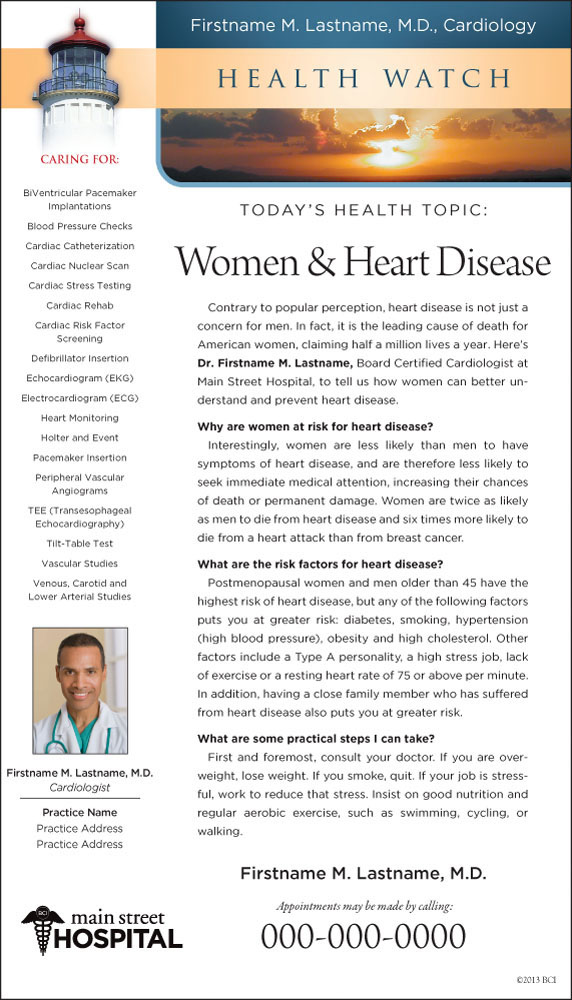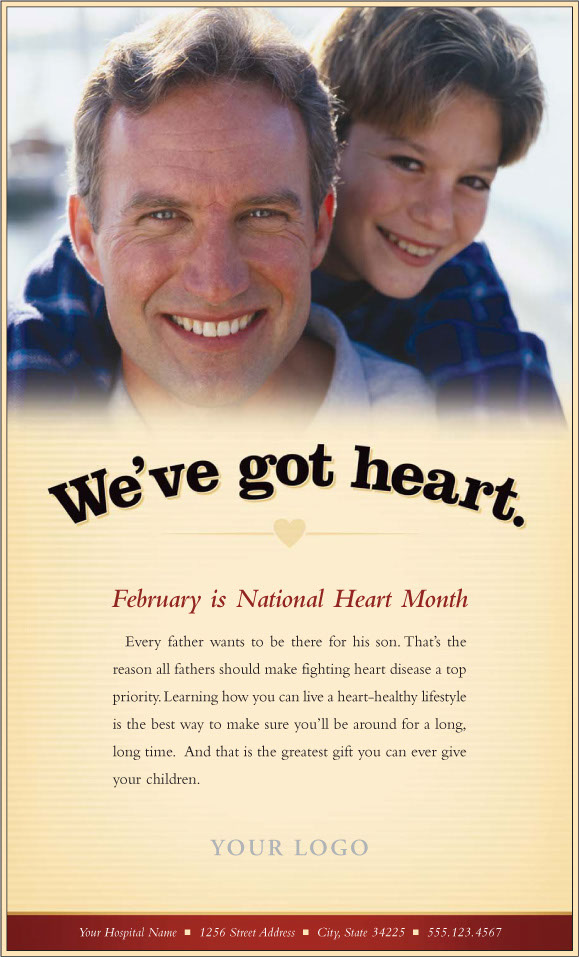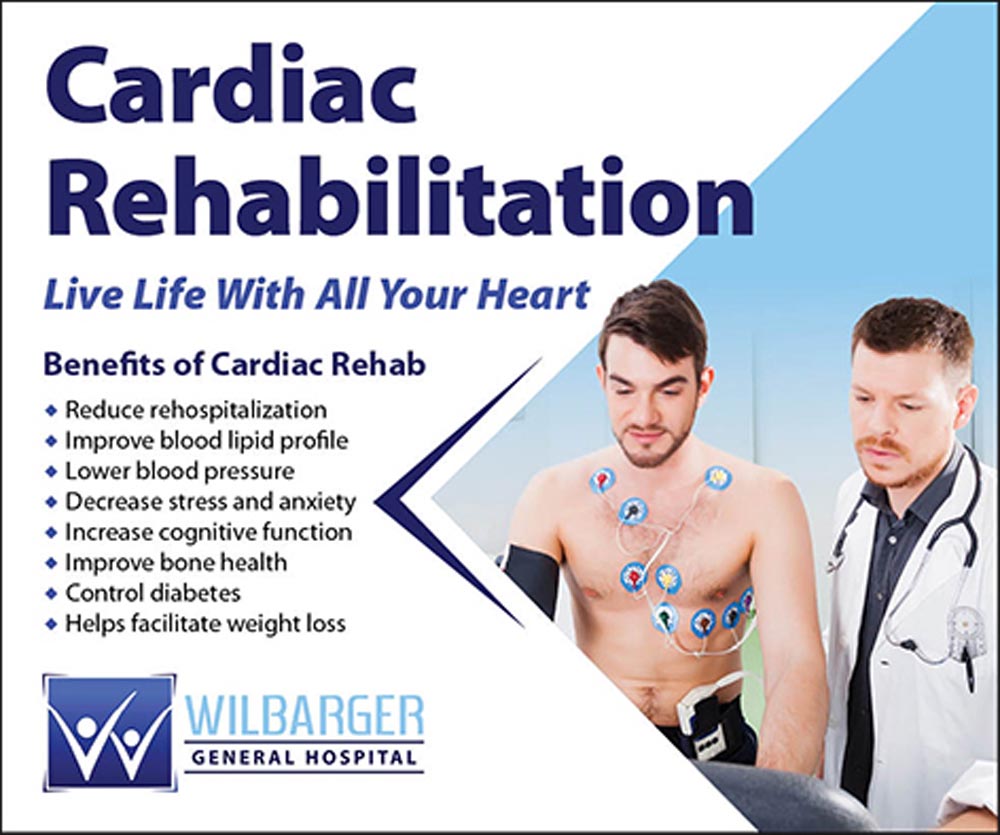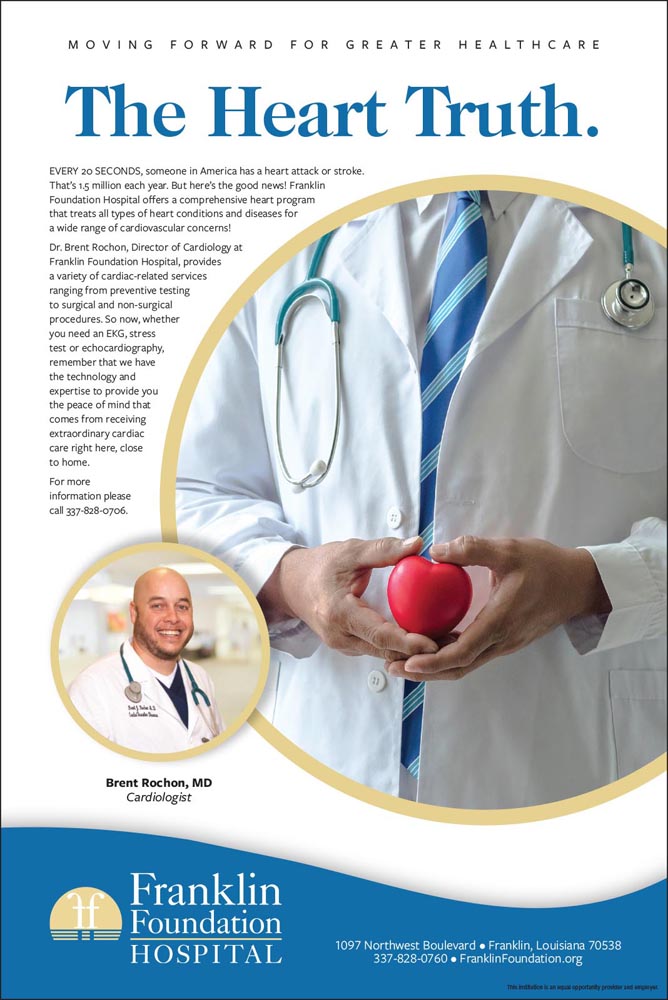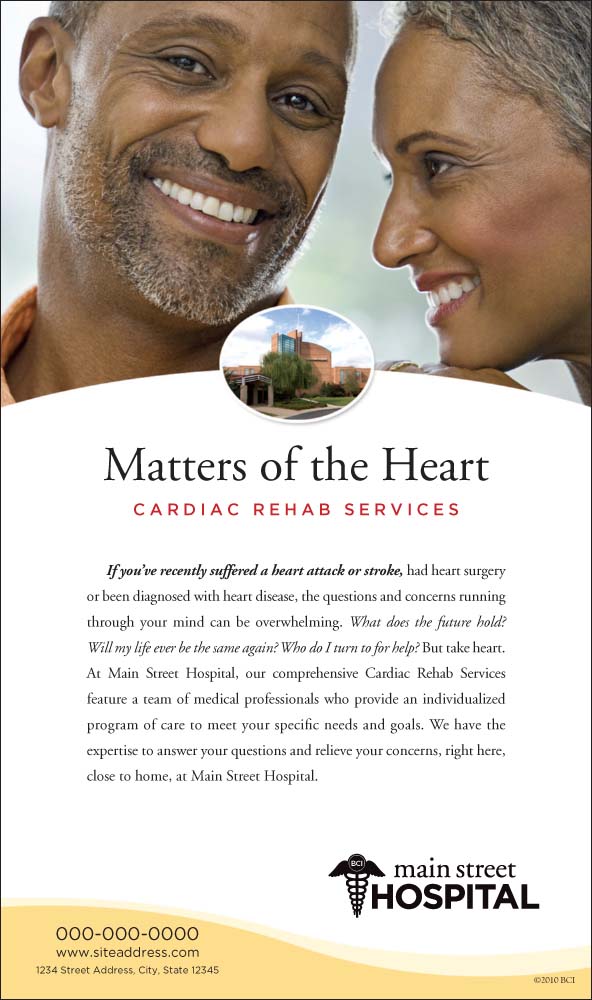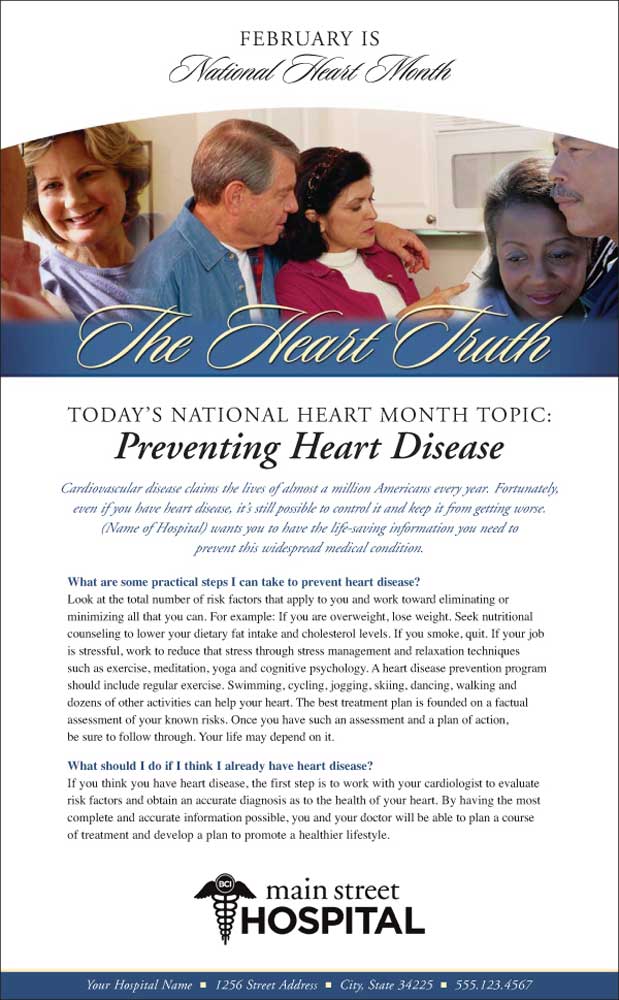
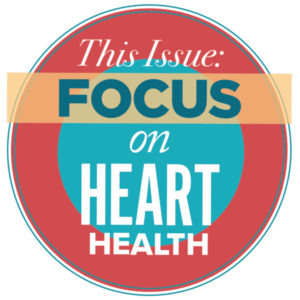 Did you know that heart disease impacts men and women in different ways?
Did you know that heart disease impacts men and women in different ways?
It is a common misperception that heart disease mainly affects men. The truth, however, is that heart disease is the leading cause of death for women in the U.S. Even though women have fewer heart attacks than men, women are 60 percent more likely to die in the first year after an attack. Given these facts, here’s some basic health information about heart disease that everyone should take to heart.
Risk Factors
The most common risk factors for heart disease, such as obesity, high blood pressure and high cholesterol, affect both women and men. For women, however, other risk factors often play a bigger role in developing heart disease, including diabetes, stress, depression, smoking, lack of physical activity or a family history of early heart disease. Likewise, post-menopausal women with low levels of estrogen have a greater risk of developing heart disease in smaller blood vessels. In addition, women are much more likely to suffer from inflammatory diseases such as lupus and rheumatoid arthritis, which increase the risk of heart disease.
Risk Prevention
Up to 80 percent of heart disease is preventable. The following recommendations for heart healthy living work for both women and men.
- Quit smoking. If you don’t smoke don’t start.
- Exercise regularly. Try to get 150 minutes a week of aerobic exercise such as walking.
- Maintain a healthy weight. Losing just a few pounds can lower your blood pressure.
- Eat a healthy diet. Avoid saturated fats and trans fats, sugar and high amounts of salt.
- Manage your stress. Being under stress can cause your arteries to tighten.
- Drink alcohol moderately. Try to limit yourself to one drink a day.
Heart Attack Symptoms
For both men and women, the most common symptom of a heart attack is chest pain, pressure or discomfort. However, this chest pain is usually not as severe in women, who are also more likely to experience other symptoms such as:
- Shortness of breath
- Pain in one or both arms
- Nausea or vomiting
- Lightheadedness or dizziness
- Unusual fatigue
- Indigestion
- Discomfort in the neck, jaw and upper back
In women, these symptoms can often be vague and not as noticeable. As a result, women are less likely to recognize the symptoms of a heart attack and suffer more heart damage before seeking help. If you ever think you may be having a heart attack, don’t take chances. Call 911 immediately.
Sources: Mayo Clinic, CDC, New York Times, livewell.com, American Heart Association, The Heart Center of Northeast Georgia
Marketing Application
February is American Heart Month. As a result, overall awareness of heart health is extremely high for this important and serious medical condition. Consider using this opportunity to raise awareness about heart disease and the wide range of heart health services available through your hospital and clinics. Cardiologists, internal medicine providers and cardiac rehab specialists are the appropriate voices to promote this awareness. Effective marketing tools might include social media, digital media and print, in tandem with a strong call to action to learn more about heart disease and to schedule an appointment with a local provider.
About Brentwood Communications, Inc.
Brentwood Communications specializes in healthcare marketing. Through our monthly AdBank subscription service, thousands of field-tested marketing materials — including content related to health and wellness — are available and can be easily customized to reflect your hospital or clinic’s existing brand.
Click here to discover more about AdBank and how Brentwood Communications specializes in providing marketing support for non-urban hospitals.

Brentwood Communications also helps hospitals stay in touch with their communities through an informative and cost-effective digital and printed magazine called My Hometown Health, a powerful tool to help promote better health and raise awareness of key services available at the hospital. Grammy and Dove Award winner Amy Grant is featured in the current Winter 2022 magazine. Amy talks openly about her open-heart surgery and encourages readers to live a heart-healthy life.
Brentwood Communications makes creating and publishing a customized, local community health magazine easy and convenient. Click here to learn more, or contact us by email.

